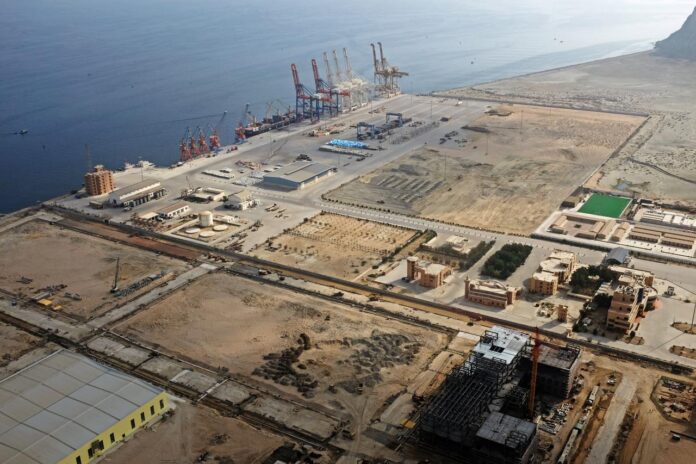The Gwadar Port Authority (GPA) has formally informed the Balochistan government that the province receives no share of the revenue generated from operations at Gwadar Port, despite its strategic location and economic importance to the region.
In a letter presented during a session of the Balochistan Assembly, GPA confirmed that operational control of the port lies with the China Overseas Ports Holding Company. It stated that two of the port’s operating entities contribute 9% of their revenue to the GPA, while a third contributes 15%.
However, none of this revenue is directed to the provincial government.
The GPA noted it has been undertaking various projects in the region as part of its Corporate Social Responsibility (CSR) obligations. Still, the lack of direct financial benefit to Balochistan has reignited concerns over provincial rights and the equitable distribution of resources.
Chief Minister Mir Sarfraz Bugti assured lawmakers that the issue would be raised with the federal government.
This development adds to the broader national conversation surrounding control over natural resources, provincial autonomy, and the benefits derived from large-scale infrastructure projects. It also comes amid sweeping reforms in Pakistan’s maritime sector.
Earlier this year, Prime Minister Shehbaz Sharif approved a comprehensive revamp of the industry, targeting a revenue increase from Rs2,610 billion to Rs8,000–9,000 billion.
The reform blueprint includes more than 120 action points, such as establishing a Pakistan Maritime and Sea Port Authority (PMSPA) and appointing new CEOs for the Karachi Port Trust, Port Qasim, and Gwadar Port. The initiative also emphasises improved port governance, revenue optimisation, digitisation, and the development of ancillary sectors, including shipbuilding, ship breaking, fisheries, and aquaculture.
A high-level committee has been formed to supervise the implementation of these measures.




